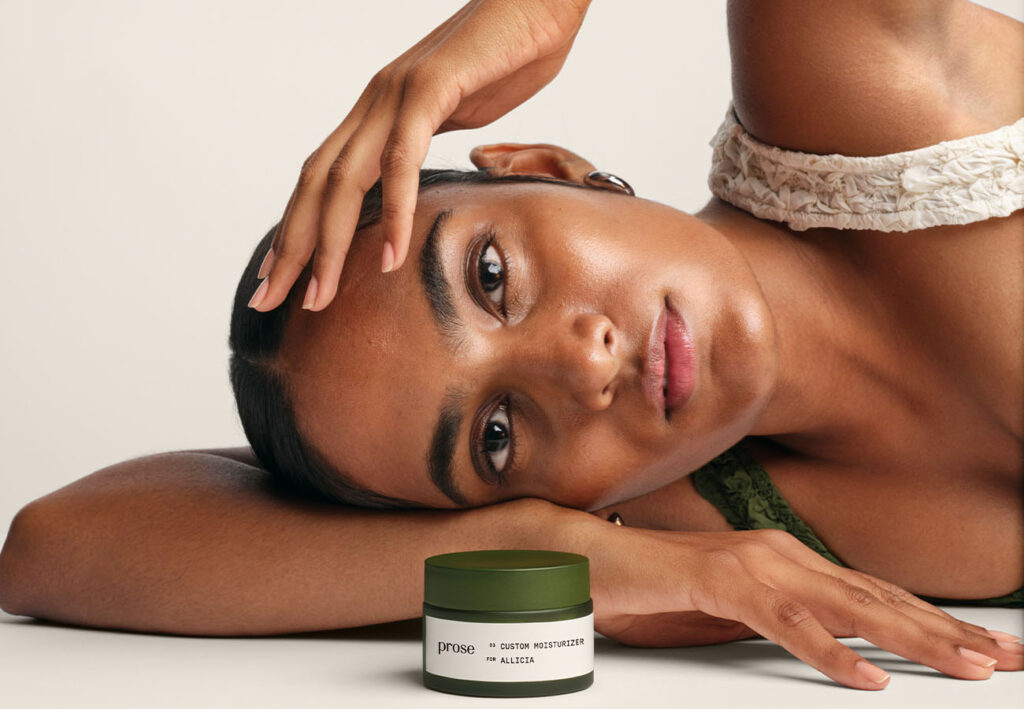However, Vitamin C isn’t quite as universal of an ingredient as other industry favorites, such as hyaluronic acid and niacinamide. That’s because it needs to be carefully stabilized and balanced in any formula, and can disagree with certain skin types, notes Green. “Those with sensitive skin may experience irritation or redness if using a very potent vitamin C serum,” she explains. This is also an argument in favor of a lighter-grade dosage (in a multitasking serum or a moisturizer, for example).
Read on for the many benefits of Vitamin C—since it is more than just a skin brightener.
The Benefits of Vitamin C in Skincare
It Evens Skin Tone
Let’s start with the most sought-out benefit. Vitamin C improves skin inconsistencies by regulating melanin production, which yields a brighter overall complexion. This helps with fading dark spots caused by hyperpigmentation or sun damage. When we talk about having clearer, more “even” complexion, then this is what we typically mean: You have a singular tone across your face, as opposed to any splotches or random spots.
It Improves Skin Elasticity
Vitamin C boosts collagen and elastin production, explains Green. Thus, the ingredient helps to smooth fine lines and promote general suppleness, since elastin and collagen keep skin tight. Skin will feel softer to the touch, and will also absorb other ingredients more easily, since it won’t be dry and recalcitrant.
It Helps Skin Repair
Vitamin C helps speed up cellular turnover, too. Pair this with the uptick in elastin and collagen production, and the ingredient doubly aids in wound or scar healing, reducing the amount of time you deal with a cut or post-inflammatory acne. That’s yet one more way the ingredient helps promote a more even complexion. See why it’s such a beloved ingredient?
It Helps Reduce Blemishes
Vitamin C has anti-inflammatory properties, thus it helps reduce redness and irritation associated with blemishes. It’s not necessarily an ingredient we’d describe as soothing on contact—let’s reserve that for things like aloe, chamomile, and allantoin—but the inclusion of Vitamin C in products will certainly help provide this local relief for blemished areas.
It Boosts Antioxidant Protection
Acting as an antioxidant, Vitamin C neutralizes free radicals caused by pollution and UV rays. Even the impact of internal stress on skin (blemishes, dullness, accelerated aging) can be minimized. We don’t often think of that internal stress as a toxin, but it has serious effects on our complexion, since it progresses signs of aging and is difficult to reverse.
How to Use Vitamin C in Skincare
Green says that you can use Vitamin C in morning or night, however, many bedtime ingredients may not interact as well with the ingredient (like retinols and exfoliating acids, which are more aggressive in nature). So, Vitamin C is usually saved for daytime use—and considering its antioxidant concentration, it’s reassuring to get that added defense before going outside (where threats like UV rays and city pollution are pervasive and omnipresent).
If you use Vitamin C in a pre-measured, balanced formula, then chances are the company has done the legwork in stabilizing the otherwise volatile ingredient. However, in many standalone Vitamin C serums, the results can be supremely effective while also risking quick oxidation or skin sensitivities. For example, many Vitamin C serums will start out orange, but then turn a brownish color within a few weeks or a month, which signals that it’s expired.
For this same reason, it can be tricky to find an effective Vitamin C product, since you never know how long a cream or serum has been sitting on the shelves. Typically, you want to use a Vitamin C product within a few months of its genesis, to ensure that the ingredient keeps maximum efficacy. (Score one more argument for choosing a custom-made Vitamin C product, then, since these are made to order and are but days old when they arrive at your door.)
Lastly, you’re not likely to see Vitamin C on the ingredients list (though it will probably be included in marketing materials for any product). That’s because the vitamin needs to be obtained through other ingredients, like ascorbic acid or magnesium ascorbyl phosphate. At Prose, for example, we obtain Vitamin C from ascorbic acid and potato starch through biotransformation. Our enzymatic technology then binds Vitamin C to glucose, which stabilizes the volatile ingredient and allows us to include it in custom skincare products.
Always made to order. Never made to waste.
Exclusive Trial Offer Get 60% Off + Free Gift







